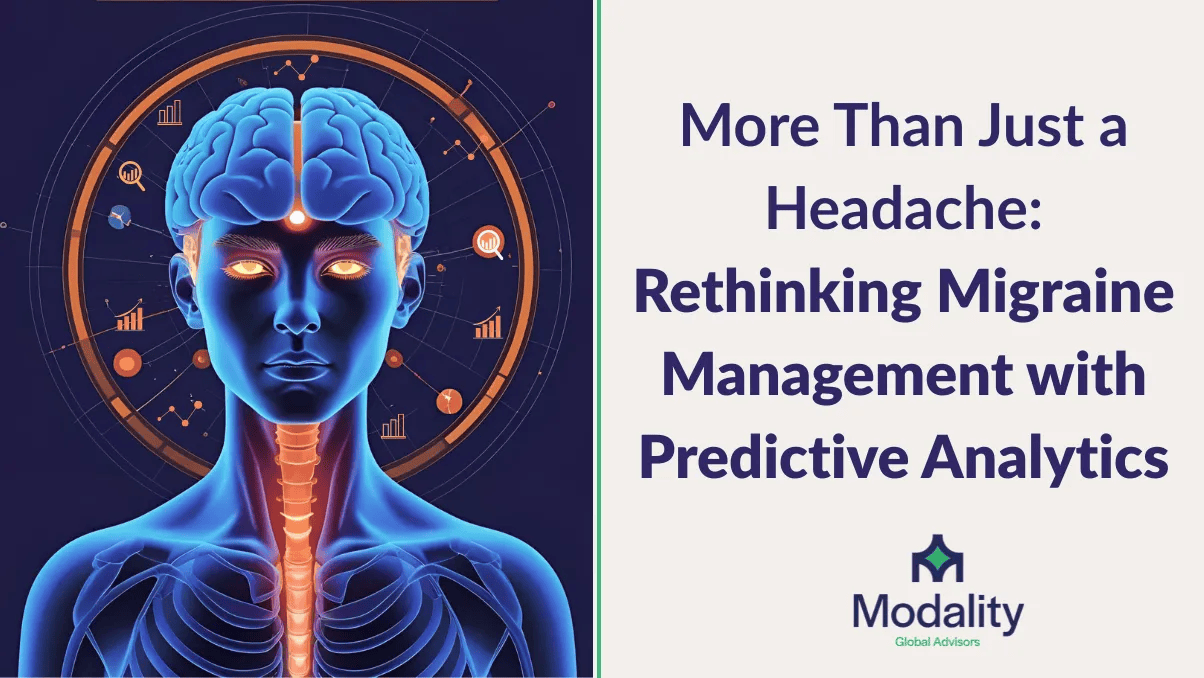More Than Just a Headache: Rethinking Migraine Management with Predictive Analytics
Migraines Aren’t “Just a Headache”—How Predictive Analytics Is Rewriting Care
For over a billion people, migraines mean throbbing pain, nausea, light sensitivity, and cognitive fog that can derail daily life. The World Health Organization ranks migraine as the second leading cause of global disability, yet it remains underdetected, undertreated, and misunderstood—especially among women, people of colour, and underserved communities.
The Cost of Staying Reactive
- 39M people in the U.S. live with migraine; many lack a formal diagnosis.
- Work absenteeism and lost productivity cost employers $13B+ annually.
- Up to 50% of chronic sufferers face co-occurring anxiety and/or depression.
Conventional care is mostly reactive—“take a pill when it starts”—and ignores the biological, environmental, and behavioural diversity of migraine.
From Guesswork to Foresight: Predictive Migraine Care
Predictive analytics + AI use history and real-time signals to flag risk windows and personalise prevention.
Personalised Trigger Mapping
- Identify individual triggers: hormones, stress, caffeine, skipped meals, weather.
- Deliver dynamic medication timing and non-drug nudges (hydration, light, guided relaxation).
- Push real-time digital prompts before predicted risk windows.
A Proactive, Modular Care Stack
| Layer | What It Adds | Outcome Signal |
|---|---|---|
| Data & Signals | EMR + wearables + environmental data | Richer risk profiles |
| Prediction | Onset forecasting, prodrome detection | Earlier prevention |
| Intervention | Timed meds + behavioural nudges | Fewer/severer attacks reduced |
| Equity & Access | Language, culture, affordability built-in | Broader adoption |
How Modality Global Advisors (MGA) Leads
- Unified data ecosystem: Integrate EMRs, wearables, and environmental sensors to power real-time models.
- Co-design with clinicians & patients: Neurologist-validated pathways patients actually use.
- Bias-aware modelling: Equity checks for accuracy across diverse populations.
- Operational ROI: Fewer ED visits and medication misuse; up to 30% savings in migraine-related costs.
Ready to modernise migraine care? Partner with Modality Global Advisors to make predictive, equitable migraine pathways real: hello@modalityglobal.com.
Sources: WHO; American Migraine Foundation; Journal of Headache and Pain (2023); NIH migraine studies.






